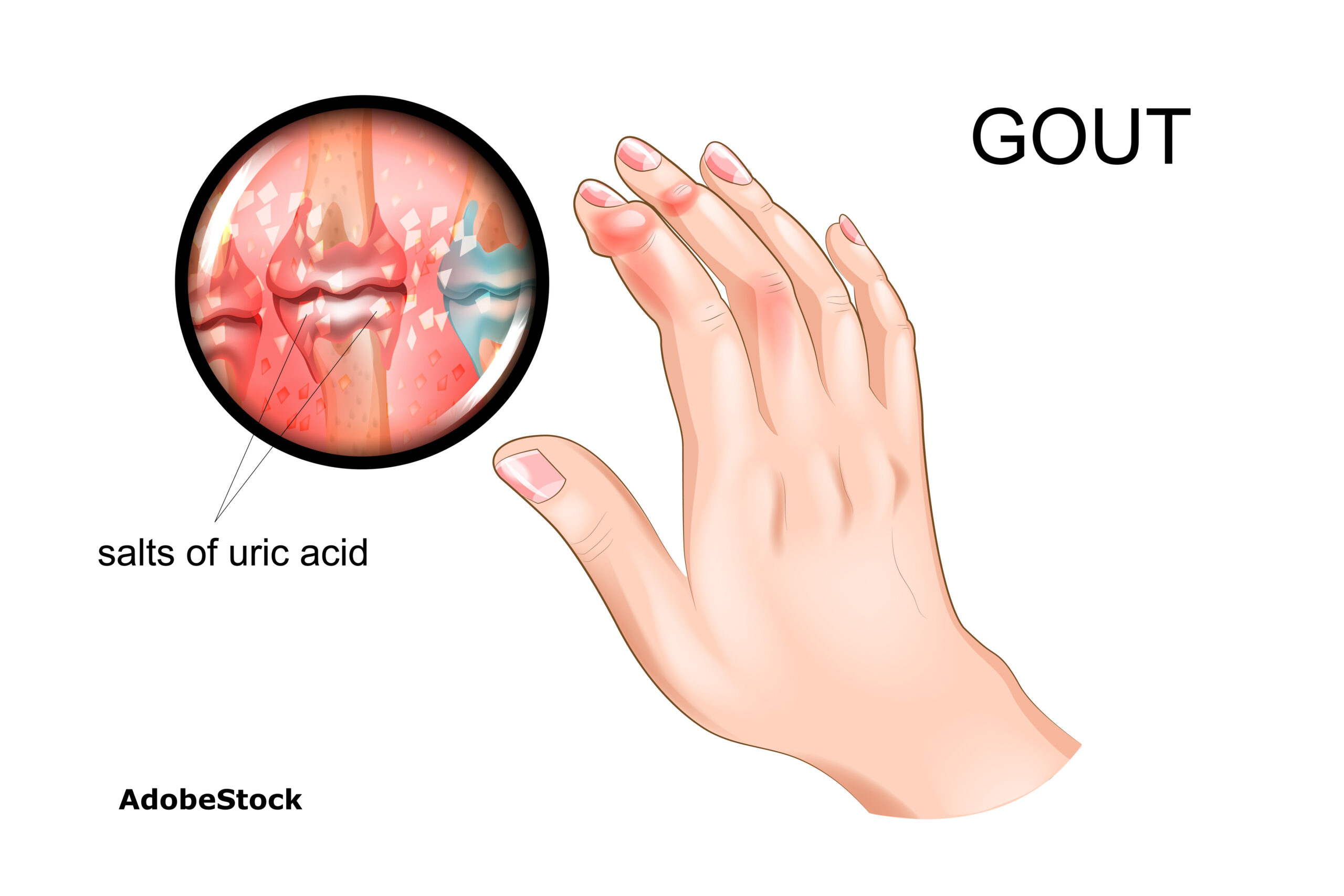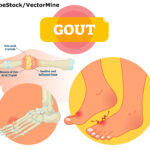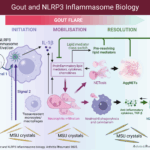Gout is a common form of inflammatory arthritis, affecting ~9.2 million adults (3.9%) in the U.S. The good news: The etiology of gout is well understood, and effective, inexpensive medications exist to treat it. However, gaps in quality of care persist. Below, explore selected content from The Rheumatologist’s collection of research reviews, case reports and clinical articles on advances in the diagnosis and management of gout. Also, gout expert Lisa Stamp, MBChB, FRACP, PhD, sorted through the research abstracts on gout accepted for presentation at ACR Convergence 2024 to bring you the most important concepts and findings.
FEATURED ARTICLE: Gout & Its Comorbidities













